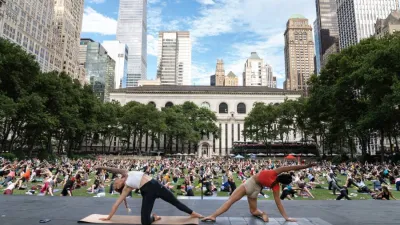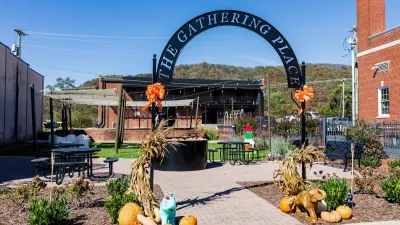In the era of globalization and increased connectivity, which was once predicted to loosen our bonds to place, Saffron Woodcraft argues that cities have become more, not less, significant.
The increased mobility of people and businesses brought by the era of globalization and the internet have, ironically, increased the competition between cities to accentuate their differences and competitive advantages in order to attract industries and their "elite" employees.
In light of this, Woodcraft argues that we should pay more attention to the social life of cities, the process of building community, and the particular places in which those elements are rooted.
"The quality of that place matters – the range and affordability of housing, the job opportunities, the schools, healthcare and public transport – because it shapes day-to-day life and long-term opportunities. Yet what makes a bricks-and-mortar neighbourhood into a flourishing community is more than these big-ticket items. There are other, more subtle, factors that shape how safe, inclusive, cohesive and supportive a place feels, and how attached to that place people become."
"Unraveling what makes a place work means understanding and examining the particular social life of that community and the multitude of influences – past and present – that shape it."
FULL STORY: Why Does Place Matter?

Alabama: Trump Terminates Settlements for Black Communities Harmed By Raw Sewage
Trump deemed the landmark civil rights agreement “illegal DEI and environmental justice policy.”

Study: Maui’s Plan to Convert Vacation Rentals to Long-Term Housing Could Cause Nearly $1 Billion Economic Loss
The plan would reduce visitor accommodation by 25% resulting in 1,900 jobs lost.

Why Should We Subsidize Public Transportation?
Many public transit agencies face financial stress due to rising costs, declining fare revenue, and declining subsidies. Transit advocates must provide a strong business case for increasing public transit funding.

Paris Bike Boom Leads to Steep Drop in Air Pollution
The French city’s air quality has improved dramatically in the past 20 years, coinciding with a growth in cycling.

Why Housing Costs More to Build in California Than in Texas
Hard costs like labor and materials combined with ‘soft’ costs such as permitting make building in the San Francisco Bay Area almost three times as costly as in Texas cities.

San Diego County Sees a Rise in Urban Coyotes
San Diego County experiences a rise in urban coyotes, as sightings become prevalent throughout its urban neighbourhoods and surrounding areas.
Urban Design for Planners 1: Software Tools
This six-course series explores essential urban design concepts using open source software and equips planners with the tools they need to participate fully in the urban design process.
Planning for Universal Design
Learn the tools for implementing Universal Design in planning regulations.
Smith Gee Studio
Alamo Area Metropolitan Planning Organization
City of Santa Clarita
Institute for Housing and Urban Development Studies (IHS)
City of Grandview
Harvard GSD Executive Education
Toledo-Lucas County Plan Commissions
Salt Lake City
NYU Wagner Graduate School of Public Service





























